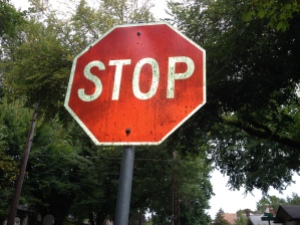It was a small request—help care for a friend’s dog overnight. My response was huge. STOP ASKING ME TO DO THINGS. Not just my friend. Everyone!
This simple request felt like one more thing in the midst of too many demands on my time. I just wanted to be left alone.
In addition, recently I’ve received numerous requests for money. From friends. From projects/organizations I care deeply about. It feels like too much. I get overwhelmed and part of me shouts, “STOP ASKING ME.”
Ultimately, all I have to do is to say “Yes” to requests that are mine to do. Say “No” to the rest.
So why do I roar, “STOP ASKING ME”?
I feel bad when there is a need for the help in the form of time or money. I want these projects/organizations to thrive. It hurts my heart to know about so many needs that I can’t help take care of. I feel worthless when I do nothing.
Part of me also doesn’t like having my well-crafted, overly full days complicated by others. Though I’d never say that to anyone, it’s hard when I find out about another project or person’s need when I feel like I don’t even have time to figure out how to respond.
My inner roar doesn’t feel like it’s going to disappear any time soon. But it is exhausting and I’m looking for an alternative response.
I want to practice standing steady in a very busy, fast-moving world. See both sides of the truth—amazing things that are happening alongside heartbreaking inequity and important work under- or non-funded. In the midst of the paradox, I want to keep my heart open.
We need to keep asking each other for what we need. Sometimes the response will be “Yes.” Sometimes “No.” Sometimes screams. Sometimes gentle clarity.
It’s not easy to be alive. But it is fascinating …









